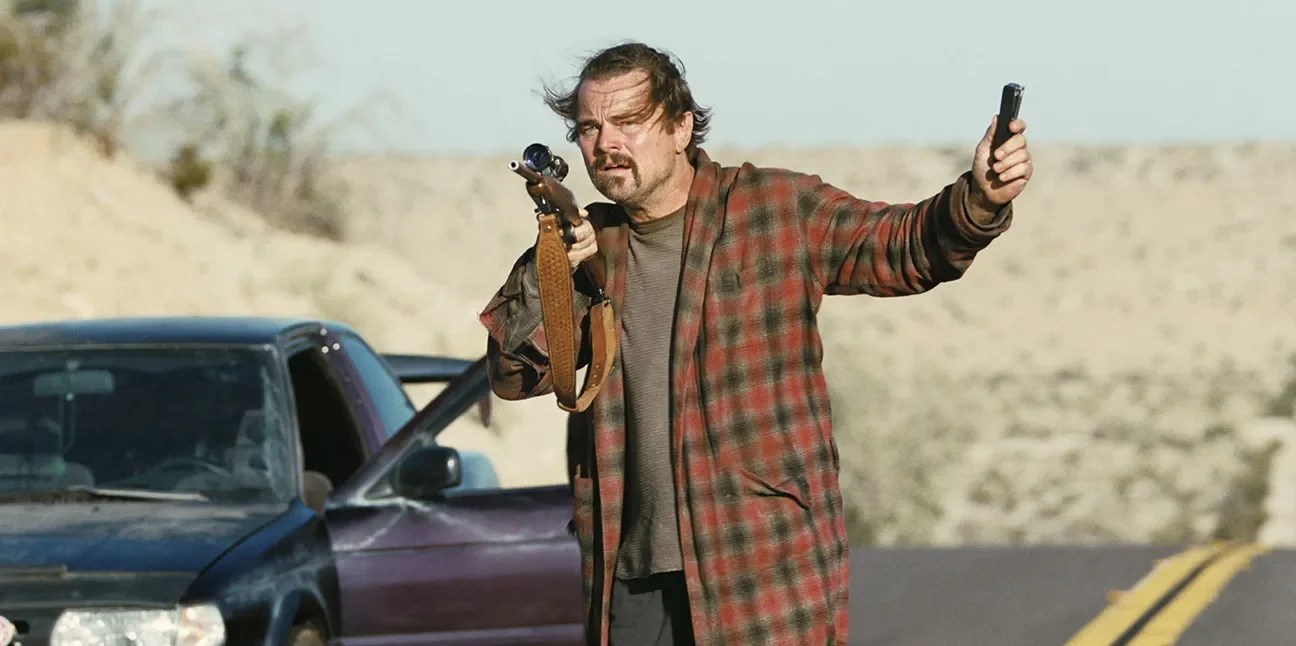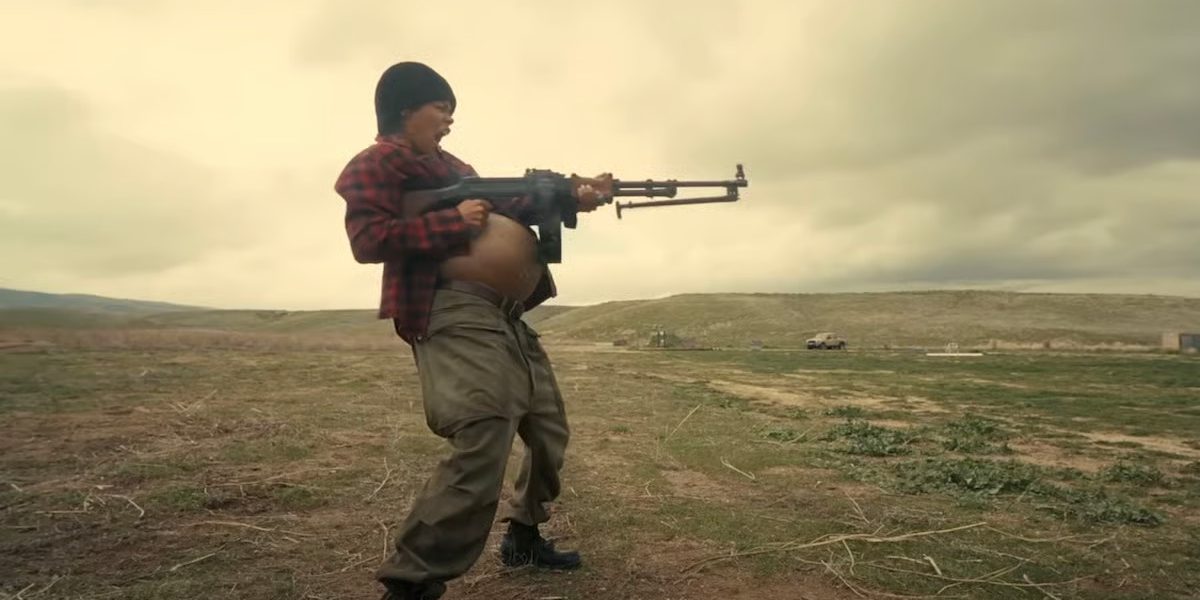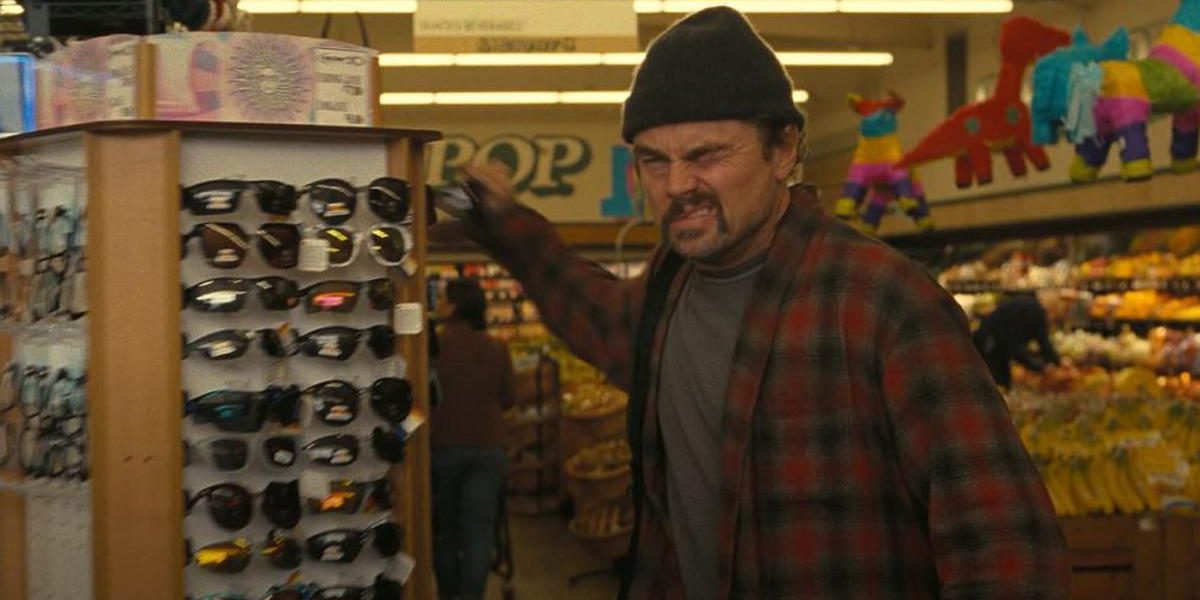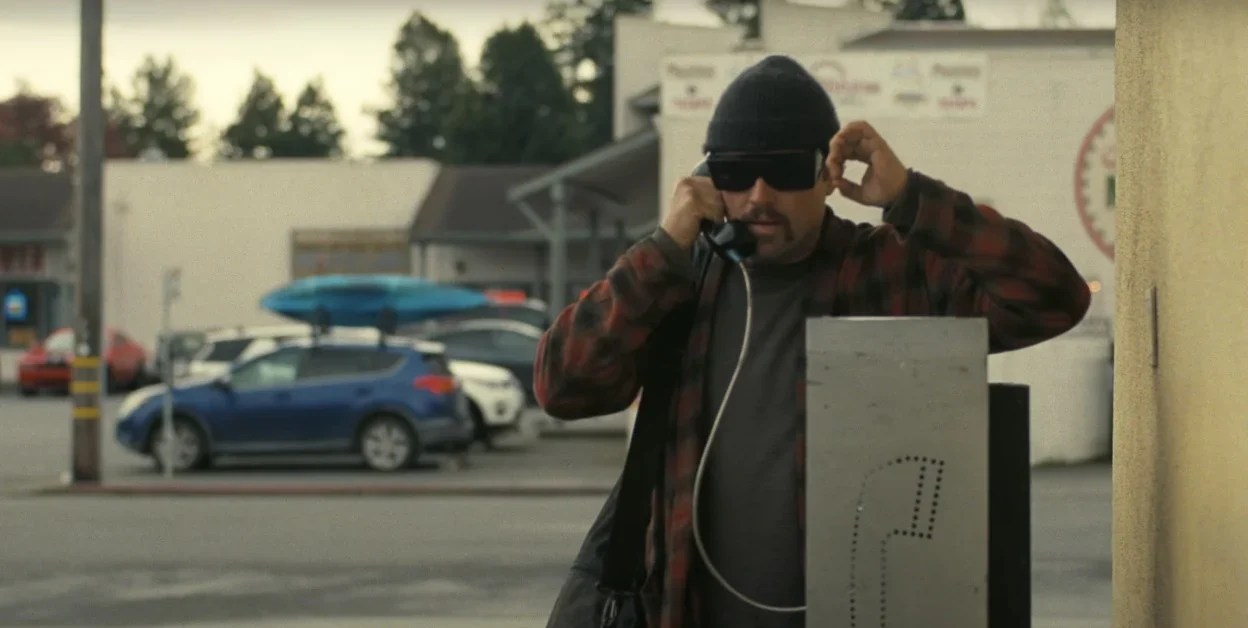The tenth feature film of Paul Thomas Anderson, ‘One Battle After Another,’ is an action thriller movie built around the theme of political resistance. It follows Bob Ferguson, a former revolutionary who is seen in his heyday as a demolitions expert for the militant activist group French 75. They free immigrants from detention centers, blow up military tanks and government buildings, rob banks, and are overall a nightmare for conservative nationalists. The actions lead them to a path of direct conflict with Colonel Steven Lockjaw (Sean Penn), a racist, xenophobic, ruthless official who makes it his mission to hunt down members of the outfit after being humiliated at the hands of their brazen leader, Perfidia Beverly Hills (Teyana Taylor).
Perfidia becomes romantically involved with Bob, and the two share a child. However, with the target set on her back, she decides to leave him with the infant. Around sixteen years later, Bob is living the life of a single father raising his teenage daughter, Willa (Chase Infiniti). He is no longer a fearless revolutionary, but a paranoid stoner whose life revolves around staying off the grid and keeping tabs on his ward. However, when the threat of Colonel Steven returns, this time with Willa in his sights, Bob scrambles to keep her safe. With his smooth operating days long gone, he does his best to fight an uphill battle, but quickly finds himself cut off at the knees as he cannot remember a crucial password. With powerful storytelling and compelling performances, ‘One Battle After Another’ opens up a discourse on the spirit and essence of revolutionary actions and their aftermath.
One Battle After Another is Loosely Inspired by Thomas Pynchon’s Novel
The narrative of ‘One Battle After Another’ is a complete work of fiction that takes inspiration from Thomas Pynchon’s postmodern novel ‘Vineland.’ Set in California in the year of conservative President Ronald Reagan’s re-election to the White House, the story focuses on Zoyd Wheeler, a former hippie who lives with his 14-year-old daughter, Prairie. They are being pursued by federal agent Brock Vond, who was once involved with Prairie’s mother, Frenesi Gates. A former member of a militant film collective, 24 fps, Frenesi betrays the outfit after being attracted to Brock, only to lose it all and disappear in the end.

‘Vineland’ deals with the transformation of the US society from the 1960s to the 1980s. While the former was characterized by the acceptance of rebellious counterculture and nurturing of free spirit, the latter was marked with social repression, surveillance, and political unrest in a conservative, authoritarian atmosphere. Zoyd and Prairie are invariably the inspiration for Bob and Willa. However, it is Perfidia, who is likely inspired by Frenesi, that shifts more from the source material than the other two. Unlike the character in the novel, Perfidia stays true to her cause throughout.
It is not the first time that director Paul Anderson has adapted the literary work of Thomas Pynchon for the screen. His 2014 film Inherent Vice, a neo-noir black crime comedy about a stoner, hippy private investigator working his way through the criminal underbelly of Los Angeles in the 1970s, is a direct adaptation of Thomas’ book of the same name. In an interview with TimeOut at the time, Paul had expressed his desire to bring ‘Vineland’ to screen one day, being a devoted fan of his work. He is also the first director to turn Thomas’ work into a movie. “I am the type of person who hears there’s a new (Thomas) Pychon book and I will go to the internet five times a minute to see what new information there is. I’m that pathological about it.” He added, “I’d wanted to adapt ‘Vineland,’ but I never had the courage. Then (Inherent Vice) presented itself, and it seemed to encapsulate a lot of his work. It seemed to be a great way to translate him into a movie.”
Paul Anderson Insists His Work Bears No Relation to the US Political Reality
While the subject of political activism has been pertinent for the US in the 21st century, director Paul Anderson has firmly stated his personal stance in the matter did not enter the equation while working on the narrative of ‘One Battle After Another.’ During a press tour interview with the French publication Le Figaro, Paul swore off on political violence and said that its use, as seen in the film, is inappropriate. Describing the events depicted as “very far from reality,” he said, “I’m just trying to sell movie tickets for a fiction movie.” In his press notes, Paul opened up about developing the film for over two decades. When he started in the early 2000s, his vision was to create an action car-chase film. He returned to writing it every two or three years, while at the same time being fixated on adapting ‘Vineland’ for the screen.

“I had the notion to adapt Thomas Pynchon’s ‘Vineland,’ a book about the 1960s that he wrote in the ’80s. So I was trying to decide what the story meant another 20 years later,” he shared. Yet another idea that occupied his mind was the character of a female revolutionary, which ultimately took shape in the form of Perfidia Beverly Hills. “So really, for 20 years, I had been pulling on all these different threads, and in a way, none of them ever left me. Realistically, for me, ‘Vineland’ was going to be hard to adapt. Instead, I stole the parts that really resonated with me and started putting all these ideas together,” he noted.
It is the grounded nature of the fiction film that made it irresistible for lead actor Leonardo DiCaprio. According to him, the contradictions in Paul’s script added to the “humanity” of his character, Bob Ferguson. While in the fantastical world of Hollywood, one would expect Bob to brush off his old skills and rise to the occasion in the face of mortal danger to his child, what the film provides is a flawed hero whose true heroism lies in the fact that he keeps moving forward despite visibly falling apart. The actor observed, “I love the idea that you also expect this character is going to use massive espionage skills, but he cannot remember the password. It’s just a brilliant setup for what is ultimately a very flawed hero dynamic that (Paul Anderson) created.”
Actors share why One Battle After Another appears very real
Speaking with RadioTimes ahead of the release of ‘One Battle After Another,’ Leonardo DiCaprio highlighted the real-world inspirations that accentuated the authenticity of the film. “(Anderson) based this on a lot of the activities of The Weathermen, late 1960s revolutionaries that were fighting imperialism, the Vietnam War, civil rights,” said the actor. “(They were) multicultural people that then had to sort of scatter like rats around the country and try to assimilate themselves and disappear into everyday society, but at a time and a place they were willing to risk their lives for their ideology and belief system.”

In the case of Perfidia Beverly Hills actress Teyana Taylor, her portrayal stems from her love of Assata, an autobiography by Black Liberation Army activist Assata Shakur. The book was present on the table of the director while he was discussing the character with her. Additionally, Taylor also incorporated traits of some of the women in her own life into the role. She told the publication that the strength that Black women are forced to exhibit finds expression in Perfidia. The survival mode that the character is seen in has also been a part of reality in Teyana’s life. Taking everything into consideration, the strong roots of ‘One Battle After Another’ in the personal reality of Americans and the global audience cannot be understated.
Read More: Where Was One Battle After Another Filmed?


You must be logged in to post a comment.